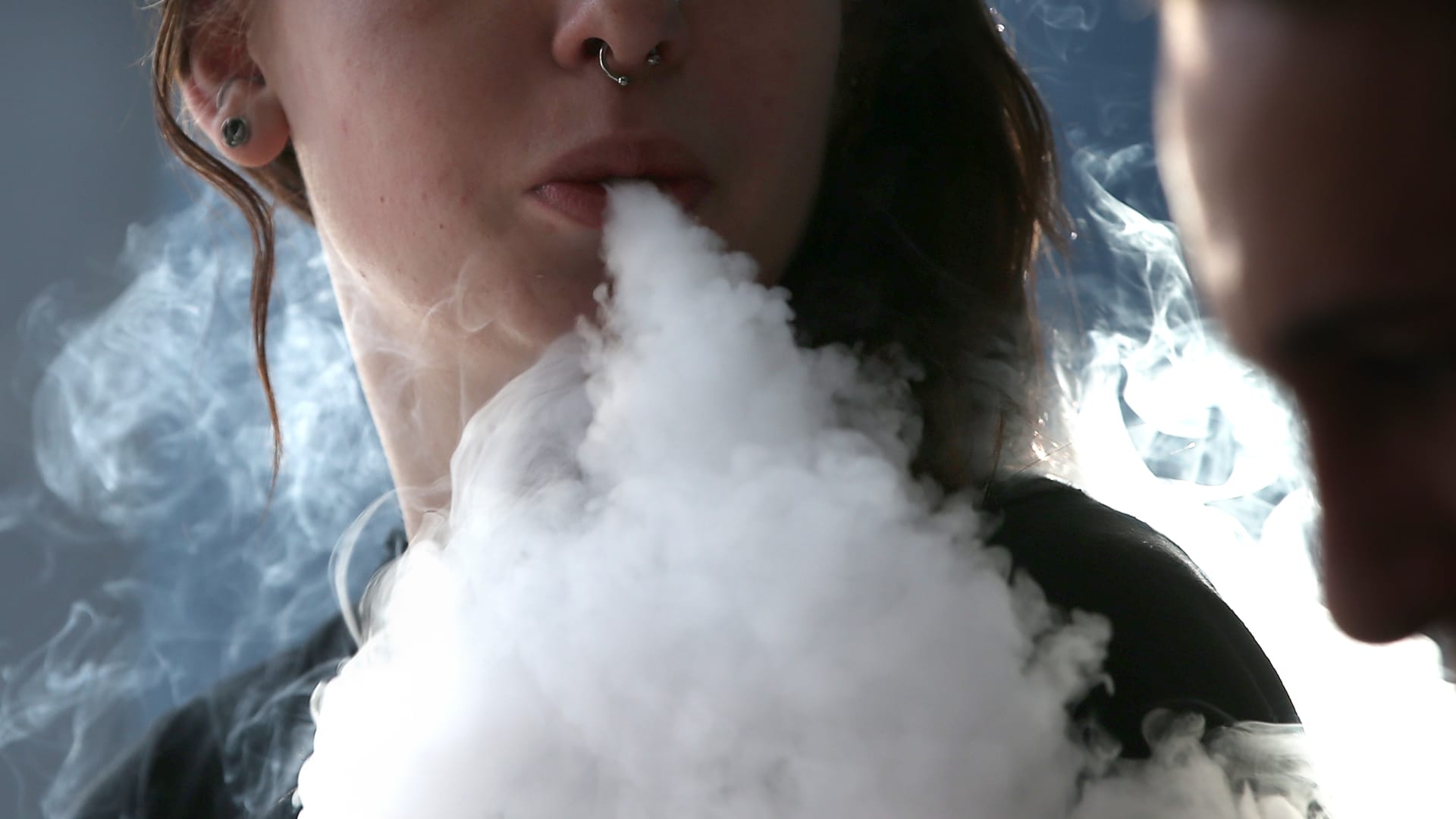A woman smokes an E-Cigarette at Digital Ciggz in San Rafael, California.
Justin Sullivan | Getty Images
The Supreme Court on Tuesday declined to hear arguments in a case challenging the Food and Drug Administration’s authority to reject approvals of flavored electronic cigarettes.
This case is one of many challenges to the FDA’s regulation of the vaping industry, which has captivated a new generation with nicotine addiction and has become an $8.2 billion market within a short span of time.
In December, the 4th Circuit U.S. Court of Appeals ruled in favor of the FDA, affirming its power to reject applications for flavored e-cigarette products in the interest of public health and discouraging younger individuals from smoking.
Avail Vapor, a vape retailer, appealed the lower court ruling, arguing that the FDA unfairly denied its product applications by secretly changing requirements without proper notification.
Avail’s attorney, Eric Heyer, expressed disappointment in the Supreme Court’s decision, stating that the FDA issued marketing denial orders to Avail without adequately informing them of the specific study requirements.
The FDA’s regulation of e-cigarettes began in 2016, categorizing them as tobacco products. Companies were given until September 2020 to apply for approval for their vape products, even those already on the market.
The FDA received nearly seven million applications, but more than 1 million were rejected.
Why did the FDA reject the e-cigarette applications?
The FDA rejected Avail Vapor’s applications for its fruit- and dessert-flavored e-cigarettes because the company did not provide long-term studies demonstrating the superiority of these flavors in helping adult smokers quit compared to tobacco-flavored e-cigarettes.
The FDA requires evidence that the benefits of flavored e-cigarettes outweigh the risks to youth, who are more attracted to sweet flavors. Avail’s applications included studies on safety and usability but did not make comparisons to tobacco-flavored vapes.
The lack of comparative efficacy studies was one of the main reasons for the FDA’s denial, according to Heyer.
Avail also argued that the FDA should have considered its marketing plan, but this argument was not successful.
What are the implications for the vaping industry?
The FDA’s rejection of Avail Vapor’s applications aligns with its mandate to prevent nicotine addiction among Americans.
Avail Vapor has since exited the retail business after selling its brick-and-mortar stores in 2021.
Other companies, like Juul Labs, have also challenged the FDA’s application rejections. The FDA determined that Juul’s products still pose a risk to public health.
Although the FDA has authorized some tobacco-flavored e-cigarette products, efforts to restrict flavors favored by teens have been ineffective. Illegal and FDA-unapproved disposable e-cigarettes have seen a significant rise in sales.
Denial of responsibility! Vigour Times is an automatic aggregator of Global media. In each content, the hyperlink to the primary source is specified. All trademarks belong to their rightful owners, and all materials to their authors. For any complaint, please reach us at – [email protected]. We will take necessary action within 24 hours.


